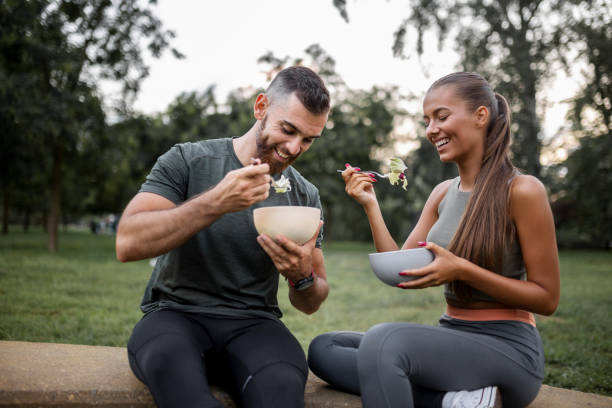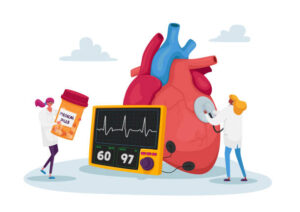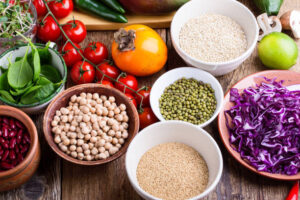Switching to a vegan diet plan for athletes might seem daunting, but it’s not only possible—it’s a powerful way to boost your performance, recover faster, and support long-term health. Whether training for a marathon, lifting weights, or just trying to stay active, a well-planned plant-based diet can provide all the fuel you need.
This guide will walk you through everything you need to know, from nutritional needs to meal plans, and I’ll share a few personal tips from my experience with plant-based nutrition tailored for athletic performance.
Why Choose a Vegan Diet as an Athlete?
I’ll be honest: when I started considering a vegan diet plan for athletes, I was worried about all the usual things—mainly, how on earth was I going to get enough protein? Would I feel tired all the time? What about my performance? But after transitioning to a plant-based lifestyle, I was surprised at how energized and strong I felt. Not only did I recover faster after workouts, but my endurance improved, and I felt lighter on my feet.
More athletes are realizing the benefits of a vegan diet plan, and science backs it up. Studies show that a plant-based meal can reduce inflammation, speed recovery, and even improve heart health. So, whether you’re curious about veganism or ready to make the switch, this guide will help you thrive.
Key Nutritional Needs of Athletes on a Vegan Diet Plan
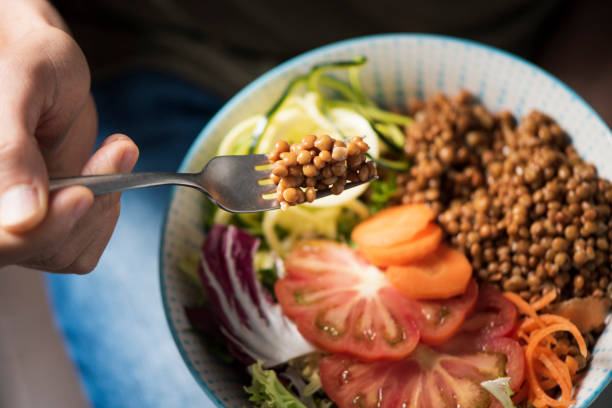
Before diving into specific vegan meal plans for athletes, let’s cover the essentials. Your body has unique needs when you’re pushing it to the limit with training, and a plant-based diet plan can meet all those needs if planned correctly.
Protein for Muscle Repair and Growth
Here are some protein-rich options you can use in your high-protein vegan diet plan:
- Legumes (lentils, chickpeas, black beans)
- Tofu and tempeh
- Quinoa
- Seitan (a great meat substitute with a high protein content)
- Edamame
- Nuts and seeds (hemp, chia, and flax are personal favorites for protein and omega-3s)
One thing I’ve learned from years of experimenting is that variety is key. Mixing up your protein sources ensures you’re getting all the amino acids your body needs in a high-protein vegan diet plan.
Carbohydrates for Sustained Energy
Carbs often get a bad rap, but as an athlete, they’re your best friend. Carbohydrates are your body’s primary energy source, especially during intense workouts. Whole grains, sweet potatoes, and fruits are fantastic for long-lasting energy. I’ve found that oatmeal before a long run keeps me fueled for hours.
Some great slow-digesting carbs that are perfect for plant-focused nutrition include:
- Brown rice
- Quinoa
- Sweet potatoes
- Oats
- Whole grain bread and pasta
Healthy Fats for Joint and Brain Health
Fats aren’t just for energy—they help protect your joints, support brain function, and reduce inflammation. This is crucial for athletes, especially after a long training session when your muscles and joints need to recover.
Some of the healthiest fat sources to rely on are:
- Avocados
- Olive oil
- Nuts and seeds
- Coconut oil
- Nut butters
Building a Balanced Vegan Diet Plan for Athletes

Now, let’s get into the good stuff—how to build meals that keep you fueled and feeling your best in a vegan meal plan for athletes.
Balanced Macronutrients: The Foundation of Your Vegan Meals
As an athlete, you want every meal to be balanced with carbs, proteins, and fats. It took me some time to get the hang of this, but now it’s second nature. Here’s a general guide to a plant-based diet for athletes:
- Protein: Around 1.2 to 2 grams per kilogram of body weight, depending on your training load.
- Carbohydrates: 45-65% of your calories should come from carbs to keep your energy levels high.
- Fats: 20-35% of your calories from healthy fats.
Pre-Workout Fuel on a Vegan Diet Plan for Athletes
The meals you eat before your workout can make or break your performance. You want a combination of carbs and a little protein to keep your energy up without feeling weighed down.
Here are some of my favorite pre-workout snacks for a vegan diet plan:
- Banana with almond butter
- Oatmeal with berries and chia seeds
- Whole grain toast with avocado and hemp seeds
It’s best to eat about 1-2 hours before your workout, so your body has time to digest and absorb nutrients from your plant-based diet plan.
Post-Workout Recovery on a Vegan Athlete Diet Plan
After your workout, your body craves nutrients to start repairing muscle and replenishing energy stores. The golden rule is to eat within 30-60 minutes after your workout. Focus on a combination of protein and carbs—this is where a hearty smoothie or a bowl of quinoa with roasted veggies shines in a vegan diet plan for athletes.
Here are some post-workout meals:
- Smoothie with protein powder, almond milk, spinach, banana, and peanut butter
- Tofu stir-fry with brown rice and vegetables
- Sweet potato and black bean bowl with salsa and avocado
Three-Day Vegan Meal Plan for Athletes
To make things easier, I’ve put together a three-day vegan meal prep for athletes. This is just a starting point—feel free to mix and match based on your preferences and training schedule.
Day 1:
- Breakfast: Smoothie with kale, pea protein, almond butter, and a banana.
- Lunch: Lentil soup with a side of whole grain bread.
- Dinner: Tofu stir-fry with quinoa, broccoli, and bell peppers.
- Snacks: Almonds, a handful of dried fruit, or a protein bar.
Day 2:
- Breakfast: Oatmeal with chia seeds, blueberries, and almond milk.
- Lunch: Quinoa salad with chickpeas, cucumber, tomatoes, and tahini dressing.
- Dinner: Black bean tacos with avocado, salsa, and a side of brown rice.
- Snacks: Edamame or hummus with carrot sticks.
Day 3:
- Breakfast: Avocado toast with hemp seeds and a side of fruit.
- Lunch: Tempeh wrapped with spinach, hummus, and cucumber.
- Dinner: Sweet potato and lentil curry with basmati rice.
- Snacks: Apple slices with peanut butter or a handful of mixed nuts.
Common Pitfalls to Avoid on a Vegan Athlete Diet
While following a vegan diet plan for athletes offers many benefits, there are common mistakes that can hinder your progress. Avoiding these pitfalls ensures you’re getting the most out of your plant-based meals and sustaining high performance.
1. Not Eating Enough Calories
One of the biggest mistakes athletes make when switching to a vegan diet is under-eating. Plant-based foods are lower in calories than animal products, meaning you may need to eat larger portions or more frequent meals to meet your energy demands. As an athlete, maintaining your calorie intake is essential for supporting endurance, recovery, and muscle growth.
2. Focusing Too Much on Processed Foods
Although the availability of vegan products has skyrocketed, not all of them are healthy. Highly processed vegan alternatives like mock meats, chips, or sweets may lack essential nutrients and be packed with unhealthy fats or sugars. While these foods can be enjoyed occasionally, prioritize whole foods such as fruits, vegetables, legumes, nuts, and seeds to fuel your body more effectively.
3. Ignoring Protein Variety
It’s easy to rely on one or two sources of protein. However, a well-rounded protein vegan diet plan includes various plant-based protein sources to ensure you get all the essential amino acids. Mix things up to cover your protein needs without monotony.
4. Overlooking Key Nutrients
Even with a diverse vegan diet, it’s possible to miss out on some important nutrients essential for energy production, muscle function, and overall health. Be mindful of food choices or consider supplements to ensure your diet remains balanced and nutrient-rich.
5. Lack of Meal Planning
Athletes have demanding schedules, and failing to plan meals can lead to poor food choices or nutrient deficiencies. Meal prepping for the week ensures you always have balanced, nutritious meals ready to go, even on the busiest training days. Planning also helps manage your macronutrient and micronutrient intake for optimal performance.
Personalizing Your Vegan Diet Plan for Athletes
While there are general guidelines for creating plant-focused nutrition, everyone’s needs are different. Personalizing your plan to fit your unique body, goals, and training routine is key to optimizing your athletic performance.
1. Adjust Based on Your Sport
Different sports demand different nutritional strategies. For example, a long-distance runner might need more slow-digesting carbohydrates, while a weightlifter may focus more on high-protein, low-fat vegan weight loss meals to support burning calories and muscle building. Make sure your diet plan reflects the specific energy needs and recovery demands of your sport.
2. Consider Food Intolerances or Preferences
While some vegan athletes thrive on legumes and grains, others may have sensitivities to foods like soy or gluten. If you have food allergies or intolerances, make substitutions that provide the same nutrients. For example, if you’re avoiding soy, opt for pea or hemp protein as an alternative source of plant-based protein.
3. Listen to Your Body
A personalized vegan diet plan for athletes should be flexible and adaptive. If you notice a dip in energy levels, slower recovery times, or changes in body composition, it’s important to tweak your diet. You may need more protein, a change in fat intake, or additional calories to meet your training demands. Regularly assess how your body feels and performs and adjust your meal plan accordingly.
Long-Term Benefits of a Vegan Diet Plan for Athletes
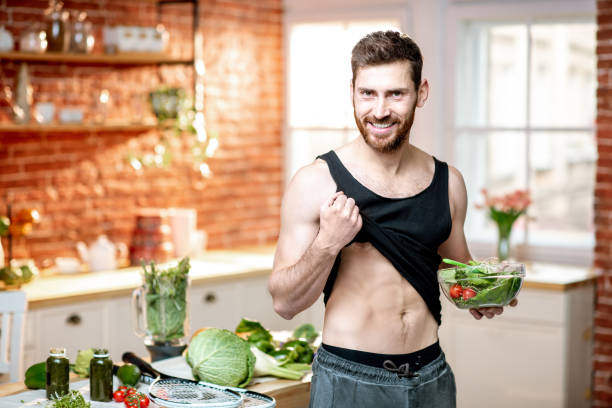
Switching to a vegan diet isn’t just about short-term performance gains. Over time, athletes who follow a well-structured vegan diet for athletes often notice several long-term health benefits such as:
Reduced Risk of Chronic Diseases
Plant-focused nutrition naturally lowers intake of cholesterol and saturated fats, which are linked to heart disease. Plant-based foods are rich in antioxidants, fiber, and phytonutrients, all of which contribute to overall heart health. This can be particularly beneficial for endurance athletes who put extra strain on their cardiovascular systems.
Additionally, plant-based eating has been shown to lower the risk of developing type 2 diabetes and some forms of cancer. Athletes serious about long-term health can benefit from the protective qualities of plant-focused nutrition.
Sustainability and Environmental Impact
Adopting a plant-based diet for athletes also aligns with a more sustainable lifestyle. The environmental impact of plant-based eating is much lower compared to diets rich in animal products.
Less water is used, fewer greenhouse gases are emitted, and less land is needed for growing plants than for raising livestock. Athletes who care about the planet can see their diet as another way of contributing to environmental conservation while improving their health.
Maintaining Bone Health
There’s a myth that vegans are at higher risk of bone-related issues, but studies have debunked this idea—especially for athletes following a properly balanced vegan diet plan.
With adequate calcium intake from sources like leafy greens, fortified plant milks, and tofu, along with sufficient vitamin D from sun exposure or supplements, bone health remains robust. The inclusion of weight-bearing exercises in an athlete’s regimen further strengthens bones, complementing the nutrient intake.
Vegan Supplements: Filling the Gaps for Athletes
While vegan diets can provide the most essential nutrients, there are a few that may require supplementation to avoid deficiencies, particularly during intense training cycles.
Vitamin B12
As mentioned earlier, Vitamin B12 is not naturally available in plant foods, so supplementation is essential for any plant-based diet. B12 supports energy production and red blood cell formation, making it crucial for athletic performance.
Omega-3 Fatty Acids
While flaxseeds, chia seeds, and walnuts provide alpha-linolenic acid (ALA), a plant-based form of omega-3, athletes might benefit from algae-based omega-3 supplements to ensure they are getting enough DHA and EPA, both of which are key for brain health and reducing inflammation.
Creatine
Creatine is naturally found in animal products and enhances performance during short, high-intensity workouts. While your body can synthesize creatine, vegan athletes who focus on weightlifting or sprinting may want to consider a creatine supplement for that extra edge.
Iron
Although many plant-based foods are rich in iron, the body absorbs plant-based (non-heme) iron less efficiently. To ensure you meet your daily needs, pairing iron-rich foods with sources of vitamin C can boost absorption, or you can consider an iron supplement if recommended by a healthcare provider.
Customizing Your Vegan Diet Based on Training Phases
As with any nutritional strategy, it’s crucial that athletes adjust their vegan diet plan based on their training cycles. Whether you’re in a period of intense training or tapering down before a race or competition, your nutritional needs will change.
Building Phase
During the building phase, where muscle growth and endurance are top priorities, you’ll want to increase your calorie intake to support intense workouts. Aim for a balance of high-protein, high-carb meals to promote muscle repair and fuel long training sessions.
Tapering Phase
In the tapering phase, where you scale back on the intensity and duration of your workouts, you might not need as many calories. Focus on maintaining nutrient intake with lighter, easily digestible meals like smoothies, salads, and quinoa bowls. Reducing portion sizes while maintaining the right balance of macronutrients is key.
Competition Day
On the day of your competition, you want to ensure that your meals are simple and provide lasting energy. A breakfast of oatmeal with chia seeds and fruit is a fantastic choice for most athletes. Stick to foods you’re familiar with, and avoid anything too heavy that might sit in your stomach.
Real-Life Success Stories: Athletes Thriving on Vegan Diets
While the science is there to back up the benefits of a vegan diet plan for athletes, sometimes the most convincing evidence comes from real-life examples. Several elite athletes have adopted a vegan diet and continue to dominate in their respective sports.
Venus Williams
Tennis star Venus Williams transitioned to a vegan diet after being diagnosed with an autoimmune disorder, and it has helped her manage her symptoms while maintaining her status as one of the top tennis players in the world.
Lewis Hamilton
Formula 1 driver Lewis Hamilton has spoken publicly about how going vegan improved his energy levels and recovery time. He credits his plant-based diet with helping him stay at the top of his sport.
Scott Jurek
Ultra-marathoner Scott Jurek has followed a plant-based diet for over 20 years and is one of the most well-known vegan endurance athletes. He holds the American record for running the most miles in 24 hours—165.7 miles, to be exact—fueled entirely by plants.
Overcoming Challenges on a Vegan Athlete Diet
While following a plant-focused nutrition can be incredibly rewarding, it’s not without its challenges. Knowing how to navigate common obstacles can help you stay on track and continue performing at your best.
Social Situations and Dining Out
One of the hardest parts of following a vegan diet is managing social situations or dining out. Some athletes worry about finding vegan options when eating out with friends or traveling for competitions. The good news is that many restaurants now offer vegan options, and it’s becoming easier than ever to eat plant-based while on the go.
Meal Prep and Time Management
Another challenge is meal prep. As an athlete, ensure your meals are balanced and meet your energy needs. Preparing meals in advance can help you avoid the temptation to grab unhealthy snacks or processed foods. Investing in a good meal prep routine is a great way to stay on top of your nutrition.
Closing Thoughts
Transitioning to plant-focused nutrition is more than just a lifestyle choice—it’s a powerful tool for maximizing performance, improving recovery, and supporting long-term health. Whether you’re an endurance athlete, a strength trainer, or simply looking to stay active, plant-based eating can provide everything your body needs.
Remember, the key to success is in the planning. By focusing on variety, balance, and nutrient-dense whole foods, you’ll not only meet your athletic goals but surpass them. Don’t forget to listen to your body, and adjust as needed. Whether trying to hit a new personal best or simply staying energized through daily workouts, a vegan diet plan for athletes is your path to peak performance.
So, what are you waiting for? Start building your plant-powered meal plan today and watch your performance soar!

